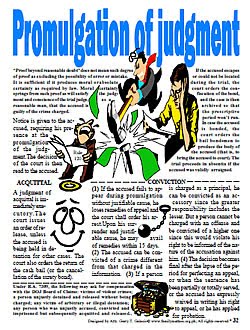On Cedric Lee and Deniece Cornejo's Bail...
A photo of Vhong Navarro, Cedric Lee and Deniece Cornejo taken from google.com. Another twist in the real legal drama of Vhong Navarro-Cedric Lee-Deniece Cornejo teleserye has unfurled on Monday, September 15, 2014. Accused Cedric Lee, Deniece Cornejo and Simeon Raz, Jr. were allowed to post bail in the amount of Five Hundred Thousand (P500,000.00) for each of them in the decision handed by Taguig Regional Trial Court on the petition to fix bail filed by the accused in a Serious Illegal Detention case filed by Actor-It's Showtime Host Vhong Navarro. Said decision brought shock to Navarro's camp and as well as to most netizens following the case. In contrast, it was a heaven-sent decision on the part of the accused. Although, the criminal case faced by the accused is a serious illegal detention and this case is a non-bailable offense considering that it is a capital offense. A capital offense is one on which, under the law existing at the time of its commiss
